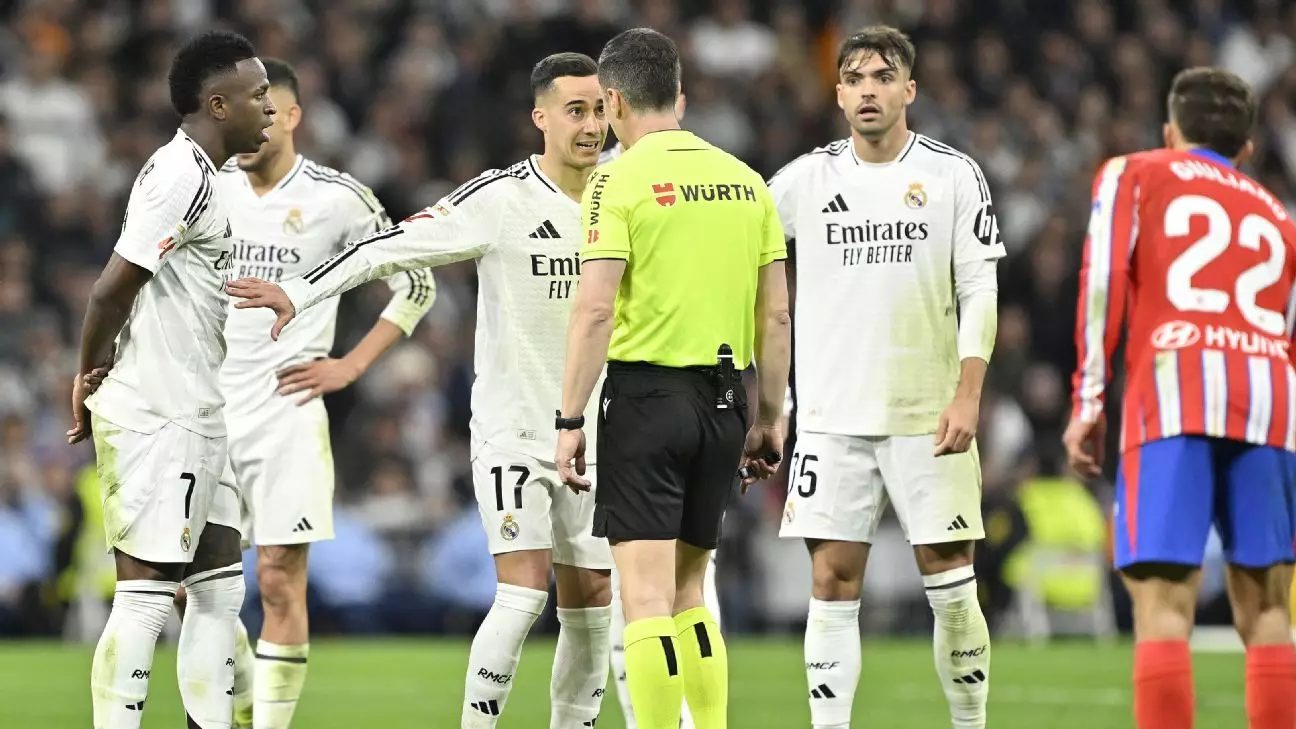In the realm of football, decisions made on the pitch can ignite fierce debates, and the recent La Liga clash between Real Madrid and Atlético Madrid is a prime example. The match ended in a 1-1 draw, but it was the penalty awarded to Atlético that has stirred controversy, drawing comments from both managers and leaving fans divided. Carlo Ancelotti, the Real Madrid coach, expressed his discontent over the nature of the penalty decision, claiming that “football people don’t understand” such calls. This situation underscores the ongoing debate surrounding VAR (Video Assistant Referee) and its role in ensuring fairness versus the subjective nature of footballing decisions.
A VAR-Driven Controversy
The pivotal moment of the match came in the 35th minute when a penalty was awarded to Atlético Madrid after a VAR review determined that Aurélien Tchouaméni had fouled Samuel Lino. Julián Álvarez successfully converted the penalty, giving Atlético an initial lead. This moment not only shifted the dynamics of the match but also reignited discussions regarding the reliability of VAR. While the technology aims to minimize human error, it often sparks debate over interpretations of fouls—what constitutes a foul in real-time can differ greatly from post-match analysis.
Ancelotti’s comments reflect a broader frustration among teams and fans regarding refereeing standards in La Liga. His initial reluctance to comment on the penalty decision highlights a tension between managers and officials reinforced by Madrid’s recent complaint about refereeing inconsistencies. Ancelotti later articulated his belief that his team deserved more from the match, indicating that the penalty decision had a tangible effect on his players’ mindset and performance.
The Dynamics of the Match
Throughout the game, it was clear that Real Madrid had more control, particularly in the second half, where they showed resilience and determination. The equalizer, scored by Kylian Mbappé, exemplified their ability to bounce back after facing adversity. Ancelotti characterized the first half as “slow” and “less aggressive,” suggesting that his squad found their rhythm later on. This analysis points to a common theme in football: the ability of a team to adapt and grow stronger despite adverse circumstances.
In contrast, Diego Simeone, Atlético’s manager, defended the referee’s handling of the game and recognized the subjectivity surrounding card decisions, referencing Dani Ceballos’s yellow card and the controversy it sparked. His comments serve as a reminder that every match is a complex interplay of perspectives—what some perceive as a clear foul, others might interpret differently.
The ongoing disputes over refereeing decisions in La Liga indicate a pressing need for reflection and possible reform. Ancelotti’s remarks about structural changes in officiating point to a broader dissatisfaction with the current system that affects not just players and managers but the integrity of the game itself. Football, with its emotional weight and competitive nature, thrives on clarity and fairness. As teams vie for supremacy in La Liga, the governing bodies must ensure that the focus remains squarely on the beautiful game, free from the overshadowing influence of controversial officiating. The conversation surrounding the Madrid derby may well be a precursor to greater changes needed in football officiating, as teams demand accountability and equitable treatment on the pitch.

Leave a Reply